Does Brushing Longer Mean Cleaner Teeth?Oct 28
Oct 28
This article explains the ideal brushing time, the risks of brushing too long, and how smart toothbrushes like BrushO help you brush effectively without overdoing it.

Is More Time Always Better?
The Common Misconception
A lot of us assume that the longer we brush, the cleaner our teeth will be. However, overbrushing—both in duration and intensity—can lead to problems like gum recession and enamel erosion.
Quality Over Quantity
It’s not just about how long you brush—it’s about how you brush and whether you cover every area. A two-minute brush with full coverage is far more effective than a rushed five-minute scrub in just one area.
What Dentists Actually Recommend
The 2-Minute Rule
The American Dental Association recommends brushing for two full minutes, twice a day. This allows enough time to clean all tooth surfaces, remove plaque, and refresh your breath—without overdoing it.
When Longer Might Be Necessary
If you’re wearing braces, have implants, or experience dry mouth, you might need targeted extra care—but even then, more brushing time should come from better technique, not mindless repetition.
What Happens If You Brush Too Long?
Gum Recession
Brushing for extended periods—especially with pressure—can cause your gums to recede, exposing tooth roots and making your teeth more sensitive.
Enamel Erosion
Even with a soft-bristled brush, brushing too long or aggressively wears away enamel over time, increasing the risk of decay and discoloration.
How to Brush Smarter in Just Two Minutes
Divide and Conquer
Break your mouth into four or six zones and spend equal time on each. Don’t skip the gumline or hard-to-reach molars.
Use a Timer or Smart Tech
Manual timing can be tricky. That’s why BrushO’s smart timer guides you through all zones and ensures full coverage across 16 monitored tooth surfaces.
How BrushO Makes Time Management Effortless
Built-In Smart Timer
BrushO includes a 2-minute smart timer with zone guidance to prevent overbrushing or missing areas.
AI Coverage Monitoring
Real-time feedback ensures every tooth gets the attention it needs—no more guessing if you’ve brushed enough.
Gentle Bristle Tech
BrushO’s bristles are designed to clean thoroughly without harming enamel, even if you’re brushing longer than usual.
Expert Tips to Maximize Cleaning (Without Overbrushing)
Use the Right Brush Head
Soft-bristled brush heads are ideal. Replace them every 3 months or sooner if the bristles are frayed.
Don’t Skip the Floss
Even perfect brushing can’t reach between teeth. Use floss or interdental brushes daily.
Follow With a Rinse
Use a fluoride mouthwash after brushing, but wait 30 minutes after brushing before eating or drinking.
Related Questions People Ask
Is it bad to brush for more than 2 minutes?
Yes, if done excessively or with pressure, it may damage your teeth and gums.
Can smart toothbrushes prevent overbrushing?
Yes! BrushO, for example, gives real-time feedback and will notify you if you’re brushing too long or too hard.
Do I need to brush for longer with a manual toothbrush?
Not necessarily, but it’s harder to ensure even coverage without built-in tech.
Final Takeaway
Brushing longer doesn’t mean brushing better. What matters is technique, coverage, and consistency. A smart toothbrush like BrushO ensures you’re brushing just the right amount—without putting your smile at risk.
Recent Posts
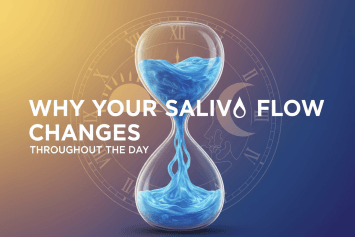
Why Your Saliva Flow Changes Throughout the Day
Saliva flow fluctuates throughout the day due to circadian rhythm, hydration, diet, and stress. Learn why it matters for oral health and how smart brushing protects teeth during low-saliva periods.
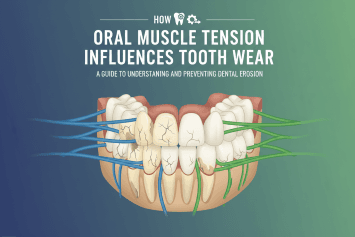
How Oral Muscle Tension Influences Tooth Wear
Oral muscle tension and jaw strain can accelerate tooth wear, enamel erosion, and gum stress. Learn how muscle habits influence dental health and how smart brushing supports long-term protection.
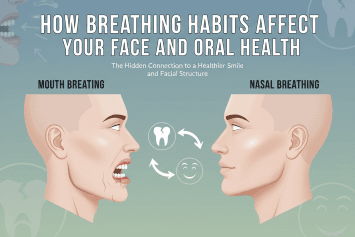
How Breathing Habits Affect Your Face And Oral Health
Discover how mouth vs nose breathing affects oral health, facial development, jaw alignment, and sleep quality — and how to protect your teeth and gums with proper habits.
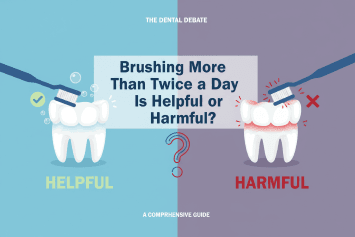
Brushing More Than Twice a Day Is Helpful or Harmful?
Is brushing more than twice daily good for your teeth? Learn how brushing frequency affects enamel, gums, and sensitivity, and discover dentist-backed guidance for safe oral care habits.
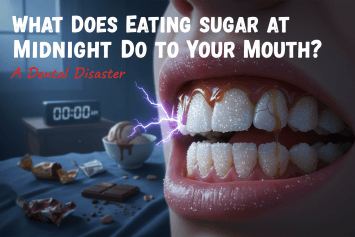
What Does Eating Sugar at Midnight Do to Your Mouth?
Discover how eating sugar at midnight affects oral bacteria, enamel health, and overall wellness. Learn why late-night snacking raises cavity risk and how proper brushing protects your teeth.

Does Early Morning Coffee Only Harm Your Teeth?
Morning coffee can stain teeth and affect enamel, saliva, and digestion. Learn how coffee impacts oral health and how to protect your smile with smart brushing habits.

How to Know Which Toothpaste Actually Suits You
Choosing the right toothpaste affects enamel strength, gum health, and sensitivity relief. Learn how to select the best toothpaste based on ingredients, needs, and brushing habits.

What Are the Bumps on the Back of Your Tongue?
Noticed bumps on the back of your tongue? Learn what they are, when they’re normal, warning signs to watch for, and how proper oral hygiene supports tongue health.

Why Most People Think They Brush Well, But They Don’t
Think you brush your teeth well? Discover why most people overestimate their brushing technique, the science behind plaque removal, and how smart tools improve oral hygiene effectiveness.

Top 5 Drinks That Quietly Damage Your Oral Health
Discover the top drinks that quietly damage oral health. Learn how sodas, juices, energy drinks, coffee, and alcohol erode enamel and increase cavity risk — plus science-backed tips to protect your smile.
